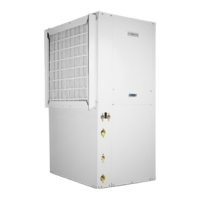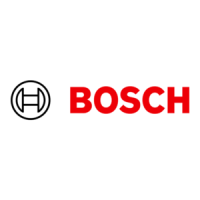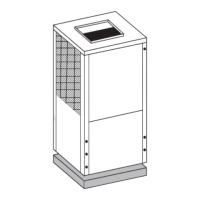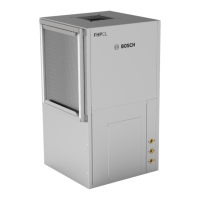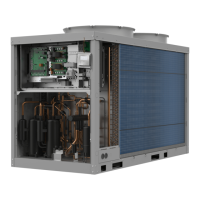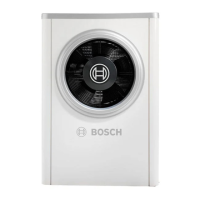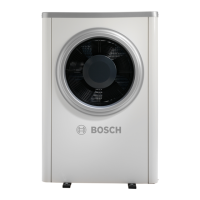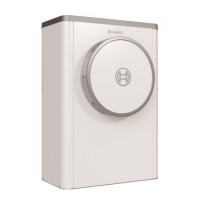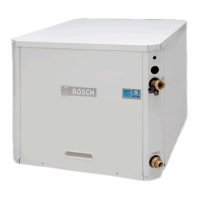Water Quality | 11CA Model
8733942456(2016/04)CA Model
Figure # 9
Connect Yellow wire labeled A to yellow wire labeled
D.(see figure # 9)
Figure # 10
Leave Black wires B and C disconnected from any
circuits. (see figure # 10)
Figure # 11
This completes the Freeze Stat Bypass Field Rework.
(see figure # 11)
WATER QUALITY
Maintaining proper water quality is important for
insuring a long and trouble free service life for an CA
series heat pump.
For closed loop and boiler/tower systems water
chemistry can be checked and easily maintained to
ensure that corrosive elements, dissolved oxygen and
pH levels are kept in check. It is important to ensure that
any additive, antifreeze or corrosion inhibitor that is
added to the water loop is compliant with all applicable
laws and regulations and is compatible with copper,
brass and bronze alloys. ensure that all recommended
safety precautions are followed when handling or adding
chemicals to the water loop.
For open loop systems, water quality is very important.
Refer to Quality Table on page# 12 which shows
acceptable ranges for a variety of water quality factors.
The three main concerns in open loop installations are
scaling, corrosion and fouling.
In installations with hard water, scaling due to a buildup
of carbonates on the heat exchanger wall can gradually
degrade the heat pump performance over time. Heat
pumps that are affected by scaling may exhibit low
suction pressures in heating and high head pressures in
cooling with a gradual loss of capacity and efficiency.
Scaled heat exchangers can be cleaned by a qualified
technician but care should be taken to avoid scaling in
the first place.
To limit scaling, water flow rates should be kept at 3
gallons/minute per nominal cooling ton (a 10°F
temperature rise in cooling) and care should be taken to
avoid air in the water lines from suction side leaks.
Cupro-nickel coils are generally recommended.
In installations with high hydrogen sulfide, chlorine or
ammonia, corrosion is a potential problem. In these
installations a cupro-nickel heat exchanger is
recommended along with maintaining proper flow and
keeping air out of the system. If water quality is outside
of the values in water quality table, then a closed loop is
recommended.
Fouling due to iron bacteria can also pose problems in
some open loop installations. Iron bacteria fouling can
quickly degrade system performance and plug heat
exchangers.
Air in the water system will greatly accelerate the fouling
or corrosion process.
NOTICE: Failure to ensure proper water
quality and flow rates can shorten the life of
the heat pump and potentially void the unit
warranty.(see table #1)
